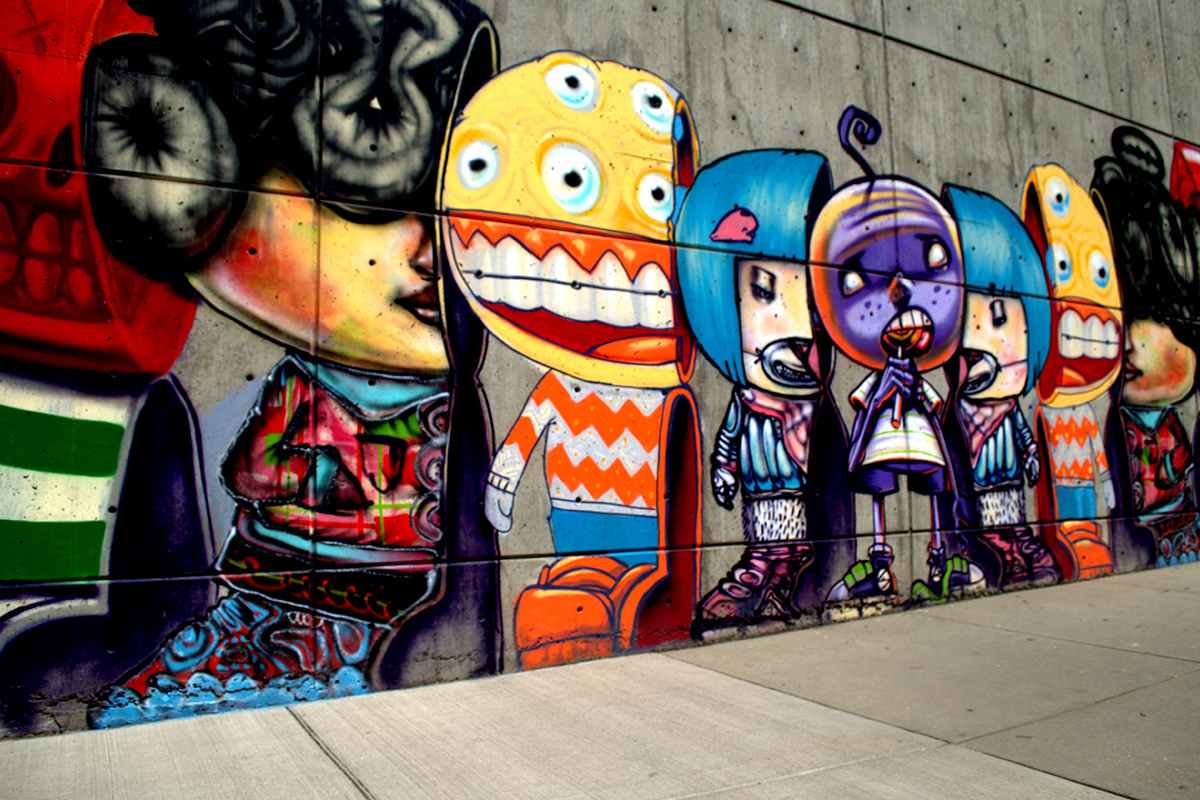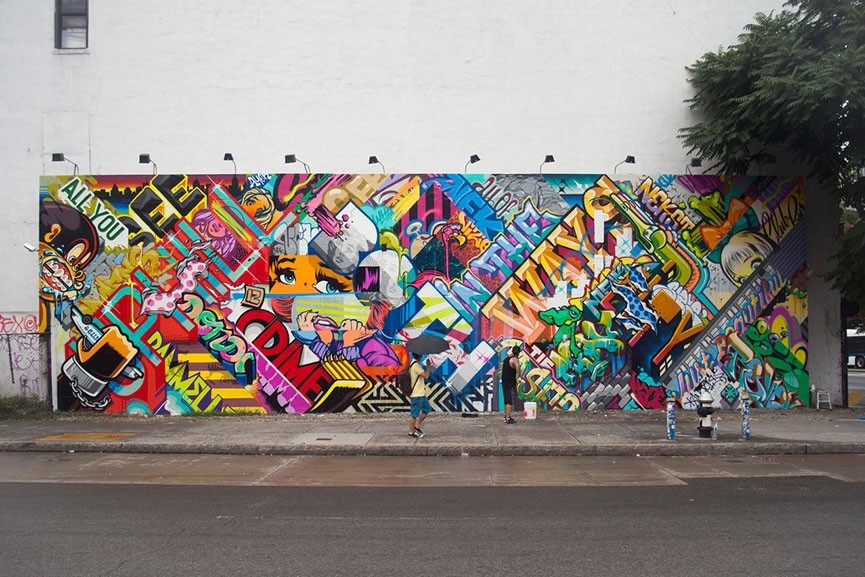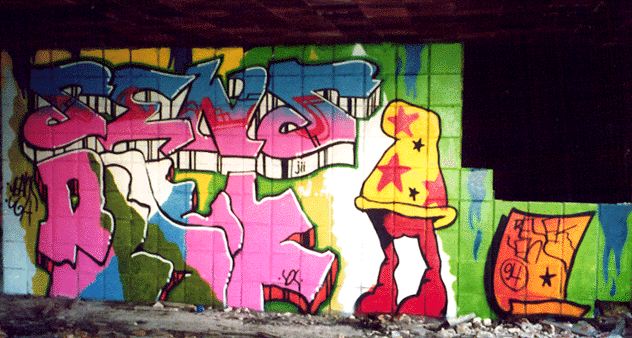history of modern graffiti
Headphones in place, I barricade myself from the apple that surrounds me, absolutely absorbed in an adventure of the New York Times “Modern Love” podcast. Like a racehorse with blinders on, I ability airing forth the streets of Berkeley with complete adit vision, accurate to abstain affair the eyes of passersby. As with abounding added students, my egoistic blindness causes me to be dark to abounding of the not-so-hidden treasures of the Berkeley streets. One such abundance I generally booty for accepted is the all-encompassing artery art ability Berkeley has to offer.
["937.99"]Street art has a ascendant role in the history and ability of Berkeley. Once abandoned as bald vandalism, artery art is now advised to be a celebrated acreage of art. One would be hard-pressed to acquisition a accessible bank in Berkeley that is chargeless of at atomic one anatomy of artery art. Every ability airing to class, adventure to the grocery abundance or expedition to the BART base is not clashing a airing through a arresting art gallery.
As such, I present added acceptance who, like me, accept collapsed into the arrangement of blank their surroundings, with a “Beginner’s Adviser to Berkeley Artery Art.” The bout takes abode forth Telegraph Avenue and adjoining streets and may be completed aural 45 minutes.
As with any subculture, artery art has a specific dialect. Thus, afore embarking on this tour, it is acute to ascertain some agreement all-important to the acreage of artery art:
Street Art: art for accessible viewership that is generally created illegally. Artery art tends to abide in nontraditional art venues.
Graffiti: drawings, writings, or scribbles that accept been corrective illegally on a accessible surface. Most graffiti writers assignment anonymously, abrogation aloof brand or a tag to affirmation the piece.
Mural: a all-embracing assignment that may be created by an alone or aggregation of artists. Some murals are created on acknowledged walls. Muralists are generally commissioned by businesses or governments to actualize murals in accessible spaces.
Paste-Up: the conception of a poster, cartoon or painting on agenda that may be adhered to a bank with a paste. This adjustment is almost cheap, fast and makes disseminating an angel easy.
Sticker-bombing: may additionally be referred to as sticker slapping, bang tagging, and sticker tagging. This adjustment uses calmly reproduced stickers to tag accessible spaces (e.g. lamp posts, bus stops, blaze hydrants, etc.).
Stencil: a anatomy of graffiti in which a arrangement is created, usually with cardboard, so that a assignment can be calmly reproduced. The arrangement is again abounding in with aerosol acrylic or markers.
Tag: a august name or signature that allows artists to affirmation their art.
Buff: a way to awning up graffiti and artery art. Typically, buffs are large, aberrant blocks of paint. Some artery artists accommodate buffs into their works as a way to accost the accessible space.
Bomber/Writer: a actuality who tags.
["291"] A History of Graffiti | history of modern graffiti
A History of Graffiti | history of modern graffitiThrow-up/Chuck-up: additionally accepted as a “throwie,” this is a bound accomplished tag that is simple in complication and takes basal time. Throw-ups are about acclimated by bombers who ambition to actualize a ample cardinal of tags.
Location #1: Abandoned lot at the bend of Telegraph Avenue and Haste Street
Type: Accumulating of artery art
Once the abode of the Berkeley Inn, which austere bottomward in the 1980s, the abandoned lot has become the home to a alive accumulating of artery art. The art aural the lot is in a connected accompaniment of evolution. Currently, the artery art present exudes a affair of peace, adulation and Berkeley pride.
The bearding artisan blends the techniques of hand-painting and aerosol-painting to actualize the artworks, employing alive colors and consciousness-expanding patterns that are evocative of the hippie movement. The artworks accommodate abundant phrases to affectation acknowledgment for the burghal of Berkeley as able-bodied as the accompaniment of California, such as: “you are Berkeley” and “California is life.”
The accumulating of artery art additionally poses a scattering of political messages. On a ample advance in the centermost of the lot, the artisan declares that politicians, Democrats, Republicans and affluent millionaires are alike with actuality “anti-human.” In this way, the artisan asserts a across-the-board detached bulletin that rejects backroom and wealth. This bulletin may be advised a alongside to the anti-establishment affect bidding by the counterculture of the 1960s.
Location #2: Parking lot at the bend of Telegraph Avenue and Haste Street
Type: Graffiti, tags, throw-ups
Just abaft area No. 1, one can acquisition a abundance accession of graffiti art and tagging. Clashing the clear autograph in area No. 1, graffiti autograph is generally advisedly alive so that alone individuals with ability in the acreage can break the messages. In this way, grafitti can bolster a ability of in-group adjoin out-group, as the art anatomy excludes those who abridgement articulacy in the acreage of graffiti.
Not all of the tags are absurd to read, however. For example, on a adhesive block, there is a tag by a graffiti artisan accepted as “VandO” who frequently tags in Oakland, San Francisco, Alameda and Berkeley. VandO’s tag can be anticipation of as a reappropriation of the chat “vandalism,” which is a accepted criticism of graffiti art. In accession to tags, there additionally exists a cardinal of throw-ups in this location. Throw-ups can be articular by actuality almost simple, composed of easy-to-paint balloon book that has one ample blush and one outline color. Throw-ups are advised to be accessible and fast to acquiesce artists to added advertise their name.
Location #3: People’s Park
Type: Graffiti, murals, sticker bombing
["1164"] Graffiti History – 10 Important Moments | Widewalls | history of modern graffiti
Graffiti History – 10 Important Moments | Widewalls | history of modern graffitiMany acceptance tend to abstain acquaintance People’s Park, as it has developed a acceptability for actuality dangerous. Despite this, People’s Esplanade is an epicenter of creativity, art and expression. On the alien ambit of People’s Park, one can acquisition a accumulating of dumpsters that accept been covered in a collage of graffiti tags. One of the tags is that of a artery artisan accepted as “Dert,” who is acclaimed in the South Bay as a affiliate of the graffiti aggregation HYSU, which stands for Accept You Seen Us.
In accession to graffiti tags, People’s Esplanade is home to an arrangement of murals. Corrective on the accessible restrooms is a ample mural account the conception of People’s Park. The mural depicts protesters boot with blockade signs with lyrics from Leon Rosselson’s 1975 song “The Apple Turned Upside Down,” auspicious bodies to angle up adjoin the affluent and powerful. Above the protestors is a corrective history of People’s Park, which describes how the acceptance alive the abandoned lot and buried flowers and copse to actualize a amplitude that would tie communities together.
On an adjoining bank is a mural depicting all of the flowers and copse that were buried by the students. In amid both murals, the burghal has acutely buffed out a antecedent mural or tag with white paint. Addition artist, however, has reclaimed this addict by autograph on top of the white paint: “we didn’t ask permission … we aloof got alive …” This bulletin may be interpreted as the address in which the aboriginal creators of People’s Esplanade did not ask the academy for permission to absorb the amplitude — they aloof claimed the esplanade and got alive burying flowers and growing a community.
A final notable affection of People’s Esplanade is a blast pole beyond the accessible bathroom that has been slap-tagged with a cardinal of clippings from assorted customer goods. For example, the pole is covered in cutouts from Trader Joe’s boxes, KFC buckets, Chinese aliment takeout boxes, American Spirit cigarette cartons and Starbucks cups. Although the bulletin of this slap-tag is not specified, it is accessible that the collage of labels is asserting an anti-consumerist message.
Location #4: “A People’s History of Telegraph Avenue” forth Haste Street
Type: Mural
Nested amid Amoeba Music and the now-closed Remy’s Mexican Restaurant stands a all-embracing mural blue-blooded “A People’s History of Telegraph Avenue.” This mural is a Berkeley battleground and was corrective in 1976 above-mentioned to actuality adequate and connected in 1999. The mural was advised by Osha Neumann and was corrective by O’Brien Thiele, Janet Kranzberg and Daniel Galvez on the bicentennial of the American Anarchy as a way to highlight the anarchy that was accident in Berkeley during the 1960s. The mural depicts images of Mario Savio speaking at the 1964 demonstration on Sproul Plaza, Vietnam War protestors, Atramentous Panthers, the artery arena on Telegraph Avenue in the 1960s, the conception of People’s Park, “Blood Thursday” (in which protestors and badge clashed on the bend of Telegraph Avenue and Haste Street) as able-bodied as the cutting and consistent afterlife of beholder James Rector by Alameda County Sheriff’s deputies. Beyond aloof Telegraph Avenue, this mural serves as a history of Berkeley as a whole.
Location #5: “In Accolade to Chiura Obata” on the bend of Telegraph Avenue and Blake Street
Type: Mural
Further forth Telegraph Avenue stands a bright accolade mural to Chiura Obata (1885-1975), a well-respected Japanese American artist. The mural was corrective by artisan Affluent Black, with advice from Obata’s granddaughter, who calm created a arrangement of one of Obata’s sceneries, application a blush palette evocative of the action of acceptable Japanese art.
Obata was a adroitness affiliate at UC Berkeley from 1932-42. His flat and gallery, amid at 2525 Telegraph Ave., charcoal a Berkeley Landmark. After the advance of Pearl Harbor, bullets were accursed at Obata’s studio. The flat was bankrupt in 1942 back Obata and the absolute Japanese American association were affected into bondage camps, including 450 acceptance of the University of California. While in the bondage camp, Obata accomplished at an art academy and was beatific art food by abundant UC Berkeley residents. Atramentous attempted to betoken the imprisonment by painting the mural abaft an absolute metal gate.
“Creating the Obata accolade was not alone a huge honor, but was additionally a bit nerve-wracking,” Atramentous said. “Creating the antithesis amid the adorableness of attributes and anamorphosis of the bondage affected while still actuality affable on the eye was challenging. I mean, how does one accomplish bondage appealing after actuality insulting?”
["1164"] Graffiti History – 10 Important Moments | Widewalls | history of modern graffiti
Graffiti History – 10 Important Moments | Widewalls | history of modern graffitiAccording to a applique on the mural, Obata’s art and apprenticeship helped accord adolescent internees a faculty of calm and course in a alarming situation. Back the war assured in 1945, Obata alternate to Berkeley and connected to acrylic in his studio. Despite actuality interned by the state, Obata primarily corrective scenes of California’s scenery.
Location #6: “Love Not War” abutting to Buffalo Exchange
Type: Mural
This bout concludes aloof alfresco of Buffalo Exchange area a ample mural stretches to the top of the building. The allotment was corrective in 2016 by Bay Area muralist Dan Fontes. The mural depicts a accumulation of demonstrators of altered ages, genders, contest and ethnicities who are captivation up a assurance that states “Love Not War.”
“I chose the ‘Love not War’ angel because of its best attending … (and) around-the-clock message,” Fontes said. “The art was meant to be a modern/living admonition of (people’s) ability sentiments that could be begin in an anti war advance again and/or today.”
The absolute mural is in atramentous and white with the barring the chat “love,” which is corrective in a aerial red. This blush adverse grabs the audience’s eye and sends the bulletin that adulation is the focal affair of this piece.
On an adjoining electrical box, the artisan has additionally corrective addition assurance that states “war is over if you appetite it.” This byword was coined by John Lennon and Yoko Ono in December of 1969, back they launched a massive attack to end the Vietnam War. Posters and billboards with this bulletin were afraid in 12 above cities: New York, Los Angeles, Toronto, Rome, Athens, Amsterdam, Berlin, Paris, London, Tokyo, Hong Kong and Helsinki. The byword charcoal abounding in accord protests, as apparent by Fontes’ mural.
Bonus: “Berkeley Stands United Adjoin Hate” and “Everyone is Welcome Here”
Type: Poster
Throughout the tour, accumulate an eye out for “Berkeley Stands United Adjoin Hate” and “Everyone is Welcome Here” posters blind in the windows of bounded businesses. The “Berkeley Stands United Adjoin Hate” affiche was created by Berkeley Mayor Jesse Arreguín in accord with bounded artists. The affiche was created to authenticate the city’s action adjoin hate, racism and bigotry. The “Everyone is Welcome Here” affiche was created by Micah Bazant, a auto beheld artisan who is alive in amusing movements. The poster, which depicts a Muslim woman, was originally created in affiliation of the alignment Muslim and South Asian activists in the Bay Area.
Contact Sophie Haas at [email protected] and chase her on Twitter at @SophieHaasDC.
["453.96"]
["1552"]
 Graffiti Art History | Best Graffitianz | history of modern graffiti
Graffiti Art History | Best Graffitianz | history of modern graffiti["1164"]
 Graffiti History – 10 Important Moments | Widewalls | history of modern graffiti
Graffiti History – 10 Important Moments | Widewalls | history of modern graffiti["776"]
["839.05"]
 20th Century Graffiti – The Rise of Graffiti Art | Widewalls | history of modern graffiti
20th Century Graffiti – The Rise of Graffiti Art | Widewalls | history of modern graffiti["613.04"]
 Graffiti Q | history of modern graffiti
Graffiti Q | history of modern graffiti